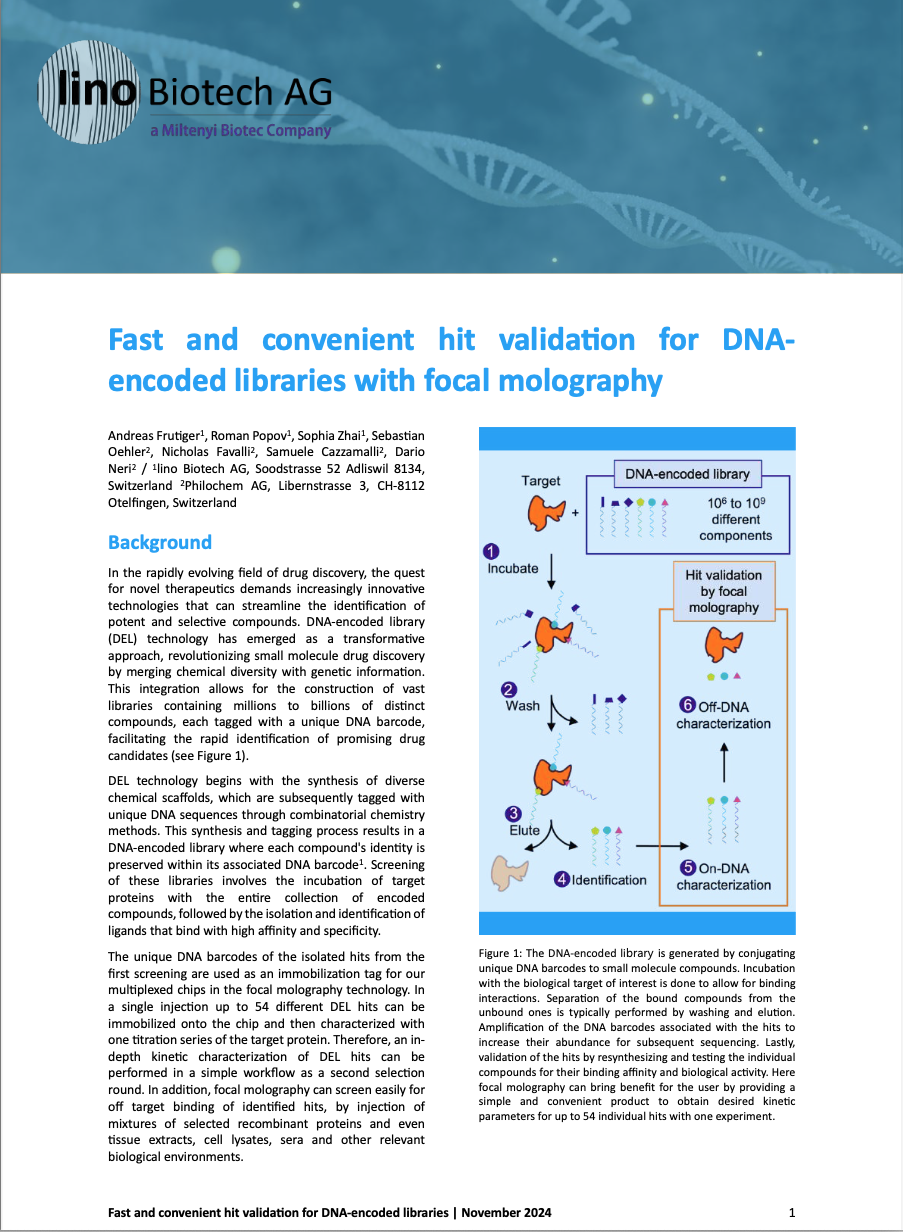Fast and convenient hit validation for DNA-encoded libraries with focal molography
In the rapidly evolving field of drug discovery, the quest for novel therapeutics demands increasingly innovative technologies that can streamline the identification of potent and selective compounds. DNA-encoded library (DEL) technology has emerged as a transformative approach, revolutionizing small molecule drug discovery by merging chemical diversity with genetic information. This integration allows for the construction of vast libraries containing millions to billions of distinct compounds, each tagged with a unique DNA barcode, facilitating the rapid identification of promising drug candidates
DEL technology begins with the synthesis of diverse chemical scaffolds, which are subsequently tagged with unique DNA sequences through combinatorial chemistry methods. This synthesis and tagging process results in a DNA-encoded library where each compound's identity is preserved within its associated DNA barcode1. Screening of these libraries involves the incubation of target proteins with the entire collection of encoded compounds, followed by the isolation and identification of ligands that bind with high affinity and specificity.
The unique DNA barcodes of the isolated hits from the first screening are used as an immobilization tag for our multiplexed chips in the focal molography technology. In a single injection up to 54 different DEL hits can be immobilized onto the chip and then characterized with one titration series of the target protein. Therefore, an in-depth kinetic characterization of DEL hits can be performed in a simple workflow as a second selection round. In addition, focal molography can screen easily for off target binding of identified hits, by injection of mixtures of selected recombinant proteins and even tissue extracts, cell lysates, sera and other relevant biological environments.

